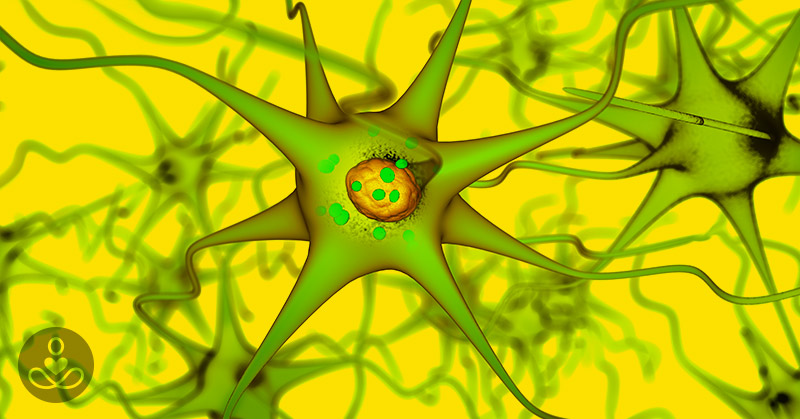We may have been wrong about Parkinson’s. New studies show the disease may stem from the gut, not the brain. If this theory proves correct, new treatments may be discovered to prevent symptoms and even degeneration.
“That would be game-changing,” states David Burn at Newcastle University. “There are lots of different mechanisms that could potentially stop the spread.”
What is Parkinson’s Disease?
For decades, Parkinson’s has been known as a neurodegenerative disease caused when brain cells creating dopamine—which controls body movement—die. This leads to the symptoms of Parkinson’s, which include:
- Tremors
- Impaired balance
- Slowness and stiffness
- Rigid muscles
- Stooped posture
- Fatigue
- Sleep disturbances
- Constipation
- Loss of sense of smell
Although medication, physical and occupational therapy can help a patient manage their symptoms, no cure has been found to completely prevent the degeneration. [1]
Martha Carlin’s Story
Martha Carlin married her husband, John, eight years before his pinky finger began quivering, followed by his tongue. At 44, he was diagnosed with Parkinson’s.
Carlin began her mission to understand her husband’s disease. “The minute we got home from the neurologist, I was on the internet looking for answers.”
Using her knowledge of accounting and corporate consulting, Carlin considered how various parts of companies worked together as a whole. She began to think of the body the same way, theorizing that Parkinson’s couldn’t be generated from just the brain.
“I had an initial hunch that [diet] and food quality was part of the issue,” she says.
In 2015, Carlin found a paper titled “Gut microbiota are related to Parkinson’s disease and clinical phenotype.” The lead researcher Filip Scheperjans of the University of Helsinki asked two questions:
- “Are the microorganisms in the guts of Parkinson’s patients different than those of healthy people?
- “If so, is that difference connected with the symptoms people experience from the disorder?”
A study answered both questions with a yes. [2]
Parkinson’s Generating from the Gut?
In a standard Parkinson’s case, there are deposits of insoluble fibers called synuclein warped and clumped together in the brain. Researchers studied the transition from a healthy body to this condition, and found these synuclein proteins in the gut as well. [3]
This finding made sense of the digestive issues, namely constipation, which can appear 10 years before any other Parkinson’s symptoms manifest. Additionally, the loss of smell is connected to the gut. The nose is the gut’s exposure to its environment, which may contain toxins affecting the body. [4]
“It could be that having the wrong bacteria in your gut triggers inflammation,” Sébastien Paillusson at King’s College London says. “We know that inflammation makes synuclein more likely to aggregate.”
For example, studies followed farmers and people who drink from wells, both of which are exposed to pesticides. These participants were at a high risk of developing Parkinson’s. The researchers suspected these toxins can harm the gut. Other theories suggest exposure to heavy metals and air pollution as a potential cause for Parkinson’s. [5]
Pathways from the Gut to the Brain
The theory continues to explain how the warped proteins enter the nervous system and reach the brain: through the vagus nerve.
To examine the theory from the opposite view, researchers studied people with a weak or missing vagus nerve. In the 70s, doctors believed an overactive vagus nerve caused stomach ulcers; therefore, some patients participated in an experimental treatment called a vagotomy, which cuts one or more branches of this nerve.
Researchers followed over 9,000 patients who underwent this procedure. The risk of Parkinson’s for people whose procedure cut low and close to the stomach dropped dramatically five years after the surgery. [6]
Keep in mind that these studies are not definitive. Others researchers theorize a virus could be responsible. It can travel from the gut through the nervous system, and leave a trail of proteins into the brain. A third theory suspects the immune system to be a link between the gut and brain. [7]
The Future of Parkinson’s
For now, studies following the gut bacteria of humans are limited to observations and have not yet spread to the neurology community. However, the International Congress of Parkinson’s Disease and Movement Disorders held a panel for the second year in a row to discuss the research of the gut’s microorganisms.
“I got interested in the gastrointestinal aspects because the patients complained so much about it,” says Scheperjans, whose study initially caught Martha Carlin’s attention.
While his research found definite differences between the bacteria of healthy people and those with Parkinson’s, it’s still too early to know how this would affect the future of this disease.
Scheperjans hopes doctors may be able to test people’s risk of Parkinson’s through their gut’s bacteria, and use diet or another method to delay or prevent the disease.
Meanwhile, Carlin continues to do what she can for her husband. She has donated to the University of Chicago to study his microbiome. She founded a company called the BioCollective that helps microbiome and Parkinson’s research.
“[The connection between the gut and brain is] a difficult concept for people to wrap their head around when you are taking a broad view,” she says.
As she researches, John, her husband, stays active. “He drives, he runs biking programs in Denver for people with Parkinson’s.” With these discoveries, the future may hold a proper cure for him.
Sources
- Navigation Understanding Parkinson’s https://www.parkinson.ca/about-parkinsons/understanding-parkinsons/
- Gut microbiota are related to Parkinson’s disease and clinical phenotype https://onlinelibrary.wiley.com/doi/abs/10.1002/mds.26069
- Gastric α-synuclein immunoreactive inclusions in Meissner’s and Auerbach’s plexuses in cases staged for Parkinson’s disease-related brain pathology https://www.sciencedirect.com/science/article/abs/pii/S0304394005012814?via%3Dihub
- Prediagnostic presentations of Parkinson’s disease in primary care: a case-control study https://www.thelancet.com/journals/laneur/article/PIIS1474-4422(14)70287-X/fulltext
- Parkinson’s disease and pesticides: a toxicological perspective https://www.ncbi.nlm.nih.gov/pmc/articles/PMC5683846/
- Vagotomy and Parkinson disease https://n.neurology.org/content/neurology/early/2017/04/26/WNL.0000000000003961.full.pdf
- Functional variants in the LRRK2 gene confer shared effects on risk for Crohn’s disease and Parkinson’s disease https://stm.sciencemag.org/content/10/423/eaai7795

